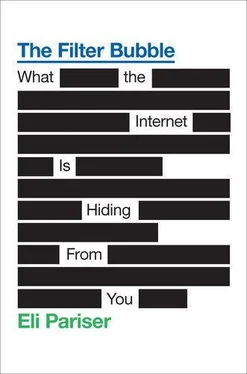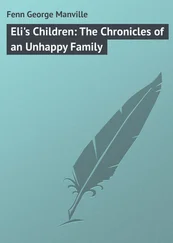Given the money to be made and the power that money holds over the American legislative system, this shift won’t be easy. So to rescue our digital environment from itself, we’ll ultimately need a new constituency of digital environmentalists—citizens of this new space we’re all building who band together to protect what’s great about it.
In the next few years, the rules that will govern the next decade or more of online life will be written. And the big online conglomerates are lining up to help write them. The communications giants who own the Internet’s physical infrastructure have plenty of political clout. AT&T outranks oil companies and pharmaceutical companies as one of the top four corporate contributors to American politics. Intermediaries like Google get the importance of political influence, too: Eric Schmidt is a frequent White House visitor, and companies like Microsoft, Google, and Yahoo have spent millions on influence-mongering in Washington, D.C. Given all of the Web 2.0 hype about empowerment, it’s ironic that the old adage still applies: In the fight for control of the Internet, everyone’s organized but the people.
But that’s only because most of us aren’t in the fight. People who use the Internet and are invested in its future outnumber corporate lobbyists by orders of magnitude. There are literally hundreds of millions of us across all demographics—political, ethnic, socioeconomic, and generational—who have a personal stake in the outcome. And there are plenty of smaller online enterprises that have every interest in ensuring a democratic, public-spirited Web. If the great mass of us decide that an open, public-spirited Internet matters and speak up about it—if we join organizations like Free Press (a nonpartisan grassroots lobby for media reform) and make phone calls to Congress and ask questions at town hall meetings and contribute donations to the representatives who are leading the way—the lobbyists don’t stand a chance.
As billions come online in India and Brazil and Africa, the Internet is transforming into a truly global place. Increasingly, it will be the place where we live our lives. But in the end, a small group of American companies may unilaterally dictate how billions of people work, play, communicate, and understand the world. Protecting the early vision of radical connectedness and user control should be an urgent priority for all of us.
Writing may be a lonely profession, but thinking isn’t. That’s been one of the great gifts of this writing process—the opportunity to think together and learn from some extremely smart and morally thoughtful people. This book wouldn’t be the same—and wouldn’t be much—without a large team of (sometimes unwitting) collaborators. What follows is my best attempt to credit those who contributed directly. But there’s an even larger number whose scholarship or writing or philosophy gave structure to my thoughts or forced me to think in a new way: Larry Lessig, Neil Postman, Cass Sunstein, Marshall McLuhan, Marvin Minsky, and Michael Schudson come to mind as a start. What’s good in this book owes a lot to this broad cadre of thinkers. The errors, of course, are all mine.
The Filter Bubble began as a sketched fragment of text jotted down in the first days of 2010. Elyse Cheney, my literary agent, gave me the confidence to see it as a book. Her keen editorial eye, fierce intellect, and refreshingly blunt assessments (“That part’s pretty good. This chapter, not so much.”) dramatically strengthened the final text. I know it’s par for the course to thank one’s agent. But Elyse was more than an agent for this book—she was its best proponent and critic, constantly pushing it (and me) to be great. Whether or not the final manuscript met that mark, I’ve learned a lot, and I’m grateful and deeply appreciative. Her team—Sarah Rainone and Hannah Elnan—were also terrific to work with.
Ann Godoff and Laura Stickney, my editors at Penguin Press, are the other two members of the triumvirate that brought this book into existence. Ann’s wisdom helped to shape what this book is about and for whom I’ve written it; Laura’s acute eye and gentle questions and provocations helped me see the gaps, leaps, and snags in the text. I’m indebted to both.
There’s another trio that deserves a great deal of credit, not just for getting this book across the finish line in (more or less) one piece, but for inspiring some of the best insights in it. Research assistants Caitlin Petre, Sam Novey, and Julia Kamin scoured the Internet and dug through dusty library books to help me figure out what exactly was going on. Sam, my resident contrarian, constantly pushed me to think more deeply about what I was saying. Julia brought a keen scientific skepticism to the task and protected me from dubious scholarship that I might otherwise have embraced. And Caitlin’s great intelligence, hard work, and thoughtful critique were the sources of some of my favorite aha moments. Guys, I couldn’t have done it without you. Thank you.
One of the best parts of the writing process was the opportunity to call up or sit down with extraordinary people and ask them questions. I’m thankful to the following folks for responding to my inquiries and helping inform the text: C. W. Anderson, Ken Auletta, John Battelle, Bill Bishop, Matt Cohler, Gabriella Coleman, Dalton Conley, Chris Coyne, Pam Dixon, Caterina Fake, Matthew Hindman, Bill Joy, Dave Karpf, Jaron Lanier, Steven Levy, Diana Mutz, Nicholas Negroponte, Markus Prior, Robert Putnam, John Rendon, Jay Rosen, Marc Rotenberg, Douglas Rushkoff, Michael Schudson, Daniel Solove, Danny Sullivan, Philip Tetlock, Clive Thompson, and Jonathan Zittrain. Conversations with Ethan Zuckerman, Scott Heiferman, David Kirkpatrick, Clay Shirky, Nicco Mele, Dean Eckles, Jessi Hempel, and Ryan Calo were especially provocative and helpful. Thanks to Nate Tyler and Jonathan McPhie at Google for considering and responding to my inquiries. And strange though it may seem, given my topic, thanks also to my Facebook friends, some real, some virtual, who quickly responded to my queries and were helpful when I was looking for an anecdote or colorful example.
During the writing process, I’ve received invaluable help from a number of institutions and communities. I don’t know where I’d be without the summer months I spent researching and writing at the Blue Mountain Center: many thanks to Ben, Harriet, and my fellow fellows for the space to think, advice (especially from Carey McKenzie), and late-night swims. The Roosevelt Institute was gracious enough to offer a place to hang my hat for the last year: thanks to Andy Rich and Bo Cutter for the intellectual stimulation and great conversations. Micah Sifry and Andrew Raseij, two great friends of online democracy, gave me the space to first make this argument at the Personal Democracy Forum. David Fenton has been there to help with every step of this process, from lending his home for writing and thinking to consulting on the title to helping the book find an audience. David, you’re a good friend. And Fenton Communications—especially my kind, thoughtful friend Lisa Witter—generously supported the early investigations that set me on the personalization trail.
There’s little I can say to sufficiently thank Team MoveOn, past and present, from whom I’ve learned so very much about politics, technology, and people. Carrie, Zack, Joan, Patrick, Tom, Nita, Jenn, Ben, Matt, Natalie, Noah, Adam, Roz, Justin, Ilyse, and the whole crew: You’re some of the most fiercely thoughtful and inspiring people I’ve ever met, and I feel lucky to have worked alongside you.
The manuscript was ready to read only weeks before it was due. Wes Boyd, Matt Ewing, Randall Farmer, Daniel Mintz, my parents, Emanuel Pariser and Dora Lievow, and of course Sam, Caitlin, and Julia were all kind enough to put aside busy lives and plow through it. I shudder to think of what might have gone to print without their notes. Todd Rogers, Anne O’Dwyer, Patrick Kane, David Kirkpatrick, and Jessi Hempel were all kind enough to look at pieces of the book, as well. And I can’t say thanks enough to Krista Williams and Amanda Katz, whose brilliant editorial thinking helped nurse some somewhat sickly chapters back to health (Krista, a second thanks for your friendship). Stephanie Hopkins and Mirela Iverac provided invaluable last-minute assistance with the manuscript.
Читать дальше











